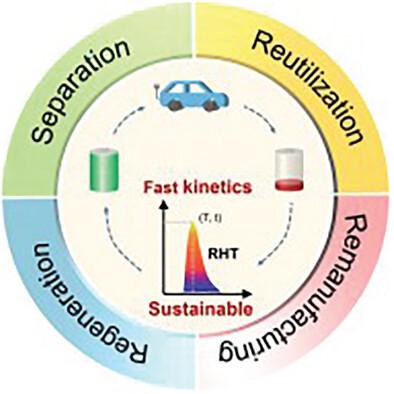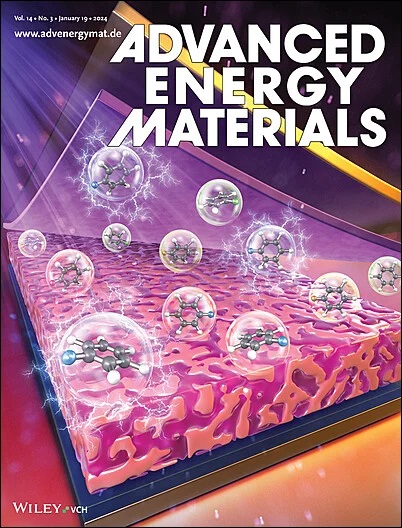Kinetics Dominated, Interface Targeted Rapid Heating for Battery Material Rejuvenation
IF 24.4
1区 材料科学
Q1 CHEMISTRY, PHYSICAL
引用次数: 0
Abstract
The ambitious pursuit of carbon neutrality underscores the pressing demand for closed-loop recycling of lithium-ion batteries (LIBs), amid escalating production and disposal challenges. Direct battery material recycling, emphasizing the rejuvenation of degraded materials, stands out as an environmentally benign alternative to conventional pyro- and hydro-metallurgical processes that are intrinsically destructive. In addition, given the surface, interface, and interphase as the major failure mechanisms in degraded materials, rapid heating technology (RHT) emerges as a promising direct recycling method, harnessing its distinctive kinetics and thermodynamics to trigger highly time- and energy-efficient, precisely defect- and interface-targeted approach to revitalize degraded materials. This review summarizes recent advancements in RHT-based LIB recycling strategies, focusing on active materials recovery, efficient regeneration, and reutilization, with emphasis on expedited kinetics and locally confined chemical reactions at interfaces. It also outlines the perspectives and future directions by emphasizing the need for re-manufactured materials to meet increasing application demands. This comprehensive review aims to guide the recycling and upcycling of spent LIBs toward a green and sustainable battery economy.

求助全文
约1分钟内获得全文
求助全文
来源期刊

Advanced Energy Materials
CHEMISTRY, PHYSICAL-ENERGY & FUELS
CiteScore
41.90
自引率
4.00%
发文量
889
审稿时长
1.4 months
期刊介绍:
Established in 2011, Advanced Energy Materials is an international, interdisciplinary, English-language journal that focuses on materials used in energy harvesting, conversion, and storage. It is regarded as a top-quality journal alongside Advanced Materials, Advanced Functional Materials, and Small.
With a 2022 Impact Factor of 27.8, Advanced Energy Materials is considered a prime source for the best energy-related research. The journal covers a wide range of topics in energy-related research, including organic and inorganic photovoltaics, batteries and supercapacitors, fuel cells, hydrogen generation and storage, thermoelectrics, water splitting and photocatalysis, solar fuels and thermosolar power, magnetocalorics, and piezoelectronics.
The readership of Advanced Energy Materials includes materials scientists, chemists, physicists, and engineers in both academia and industry. The journal is indexed in various databases and collections, such as Advanced Technologies & Aerospace Database, FIZ Karlsruhe, INSPEC (IET), Science Citation Index Expanded, Technology Collection, and Web of Science, among others.
 求助内容:
求助内容: 应助结果提醒方式:
应助结果提醒方式:


